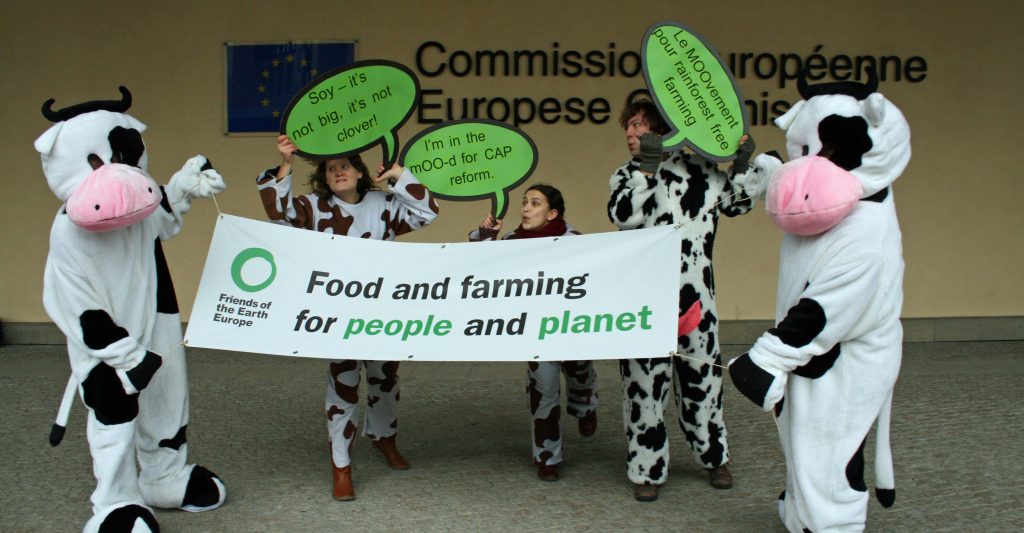Brussels – Proposals for the future of farming in Europe were revealed in Brussels today where Agriculture Commissioner Dacian Ciolos announced plans to reform the Common Agricultural Policy (CAP).
Mute Schimpf, food campaigner for Friends of the Earth Europe said: “Today’s announcement is a long awaited step towards a more people and planet-friendly food and agricultural policy for Europe. The plans announced to reward farmers who are socially and environmentally responsible can give the CAP a new social legitimacy.
“We need a fundamental shift in subsidies to help European farmers put home-fed animals in our fields and rainforest-free food on our shelves. A new Common Agricultural Policy must stop driving deforestation in South America. Today’s announcement is a first attempt, but more concrete and ambitious measures are necessary to reduce Europe’s dependence on imported protein.”
Amongst many of the environmental and social problems associated with the CAP, it has to date contributed to the EU importing vast amounts of high protein animal feed, mainly soy. [1]
Friends of the Earth Europe is campaigning for the new CAP to help European farmers swap imported soy animal feed for home-grown alternatives. The expansion of soy plantations is one of the major drivers of deforestation and rural conflict in South America, including in Brazil’s Amazon and Cerrado. Europe currently imports more than two thirds of its protein feed.
Friends of the Earth Europe calls for the reform of the Common Agricultural Policy to:
- Support the cultivation and use of home grown protein plants in Europe in order to reduce Europe’s current reliance on imported feed
- Stop direct and indirect subsidies for industrial livestock production
- Provide extra support to farmers working in difficult conditions such as mountain areas, as well as for sustainable small-scale farming
- Implement a market policy that reflects all environmental and social costs of food production.
***
Notes:
[1] A friends of the Earth Europe briefing, ‘How the CAP is causing soy expansion and deforestation in South America’ is available here.




